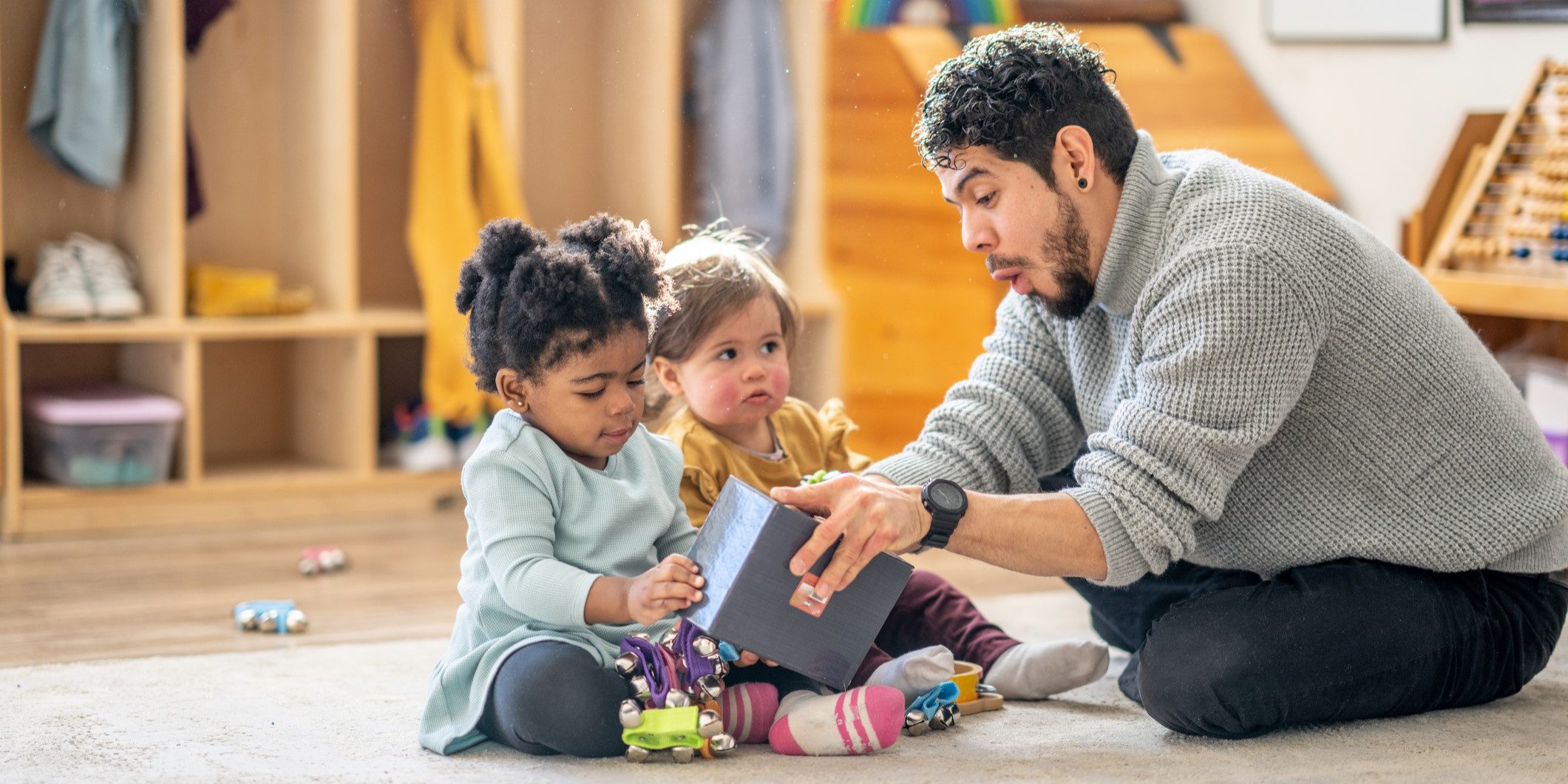Language Facilitation and Support
Support for children’s language development is crucial in early care and education settings. Frequent language stimulation is expected of teachers regardless of the age and verbal ability of the children in their care.
Professional Learning Resources
This section includes professional learning resources that can help practitioners deepen their understanding of quality for this topic.
Online Course
Talk with Me is a three-part series of courses designed to provide teachers and caregivers of infants and toddlers with the skills and knowledge to support language development. Participants will learn about language milestones, theories, and long-term outcomes through video segments, expert interviews, and research-based resources. (6 hours)
Age(s): Infant, Toddler
Online Course
eCircle Professional Development Series – Building Vocabulary is a course teachers can take to help enhance and develop theme-based vocabulary instruction for their prekindergarten children. Practitioners will learn teaching techniques in both English and Spanish that can help them create a classroom environment based on themes that help children grow in language and vocabulary development.
Age(s): Preschool
Online Course
This course focuses on key elements of encouraging children’s talk: responsiveness, rich content and stimulation, and emotional support. Practitioners will learn scaffolding strategies for children’s talk that will encourage them to flourish within the classroom environment. (6 hours)
Age(s): Preschool
Online Course
This is a self-paced tutorial created to help educators understand the best ways to engage children in meaningful conversations. The video includes sections on how to build in opportunities to talk, modeling conversations, and using complex language and vocabulary with children.
Age(s): Toddler, Preschool
Online Course
This course helps teachers and caregivers understand how to be responsive caregivers to infants and toddlers through the support they provide in the areas of language and development. The training focuses on the following topics: language development theory, language mastery, stages of language acquisition, and language development within the context of culture and history.
Age(s): Infant, Toddler
Online Course
This self-paced training gives prekindergarten teachers an overview of the Language and Communication domain, end-of, year outcomes, and types of instructional strategies they can use to support children’s skill development. The training focuses on the following topics: listening comprehension, speaking (conversation), speech production, vocabulary, and sentence structure.
Age(s): Preschool
Implementation Tools
In this section you will find tips, strategies, examples, and specific tools and products that can improve your implementation of practices related to this topic area.
Activity
This page introduces four key areas of infant-toddler language and communication, and links to activities within the Circle Activity Collection: Infant and Toddler that facilitate language development.
Age(s): Infant, Toddler
Publication
Developmental language suggestions, a publication by Penn State Extension, gives the reader steps they can take to help children develop early literacy and language skills. This resource is written for infant, toddler, and preschool teachers and provides suggestions for each developmental stage.
Age(s): Infant, Toddler, Preschool
Curriculum
The Early Learning Matters (ELM) Curriculum is an extensive, research-informed program created to support the optimal learning and development of children from birth to five years of age. ELM offers a comprehensive, developmentally appropriate approach to meaningful learning for all children.
Age(s): Infant, Toddler, Preschool
Activity
This page includes strategies for embedding high-quality language support and links to activities within the Circle Activity Collection that facilitate language development.
Age(s): Preschool
Publication
Intentional early language development, a publication by PennState Extension, provides readers with an idea of how they can purposefully guide and support children with language development. Practitioners will read about how they can intentionally plan their days with oral language opportunities to support language acquisition.
Age(s): Infant, Toddler, Preschool









